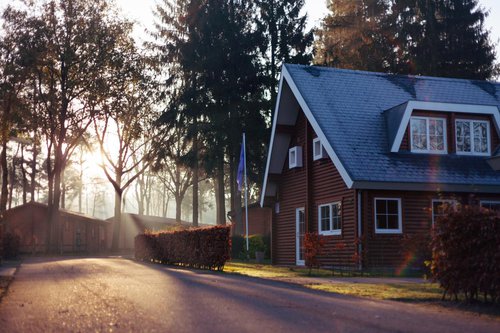
REVERSE MORTGAGES: WHAT ARE THEY AND WHAT ARE THE BENEFITS?
 Mortgages are confusing and complicated enough. When it comes to a reverse mortgage, many people have no clue what they are, how they work, or why they might want to get one. A reverse mortgage can be beneficial to you if you're in a financial crunch and are trying to figure out how to come up with the cash you need.
Mortgages are confusing and complicated enough. When it comes to a reverse mortgage, many people have no clue what they are, how they work, or why they might want to get one. A reverse mortgage can be beneficial to you if you're in a financial crunch and are trying to figure out how to come up with the cash you need.
What is a reverse mortgage?
A reverse mortgage converts part of the equity in your home into cash. It does this without requiring you to sell your home or creating an additional monthly bill for you to pay.
In a regular mortgage, the lender loans you the money for your home and you then pay the lender back with a monthly payment. A reverse mortgage is the opposite. The lender takes part of the equity in your home and converts that into payments to you. You can think of it as being like an advance on your paycheck, only in this case, it's an advance on the equity in your home.
Generally, these payments are tax-free, and you don't have to pay back the money while you are alive and living in the home. Once you pass away or sell the home, your spouse, children or other heirs are responsible for paying off the loan. In some cases, this requires selling the home.
There are three types of reverse mortgages: single purpose, proprietary, and federally-insured. Single purpose are the least expensive, but can only be used for one lender-specified purpose, such as home repairs. Proprietary are private loans developed by the company that backs them, and if you own a higher valued home, they may give you more money. Federally-insured are backed by HUD, and can be used for any purpose.
When are reverse mortgages usually used?
A reverse mortgage can only be used by those who are age 62 or older. You must own your home outright or only have a small mortgage. It's often used by people who want to pay off debts, make home improvements, supplement their monthly income or pay for healthcare expenses.
Because the loan has to be repaid upon your death or the sale of your home, it is also generally used by people who plan to stay in their homes. It's also important to note that it can only be used on a home you live in, not a second, vacation or rental home.
How can a reverse mortgage help you?
A reverse mortgage is generally easier to qualify for than a regular mortgage, because your credit score is not a factor. The only income requirement is that you have enough to continue paying your property taxes, insurance, and home maintenance.
If you're planning to stay in your home, are worried about your credit affecting your ability to get a loan, and need cash, a reverse mortgage may help you by taking the equity you already have in your home and turning it into cash you can use. It can improve your monthly cash flow, pay off unexpected expenses or large debts, or even pay off your existing forward mortgage.
Reverse mortgages are not for everyone. Despite the advantages, in some cases there may be better alternative solutions for your financial difficulties. It's important when considering a reverse mortgage, to seek professional help to ensure that you make the best choice for your personal financial situation. A lawyer experienced with bankruptcy, foreclosure, or other financial issues can help you consider all of your options. The professionals at John E. Pytte Attorneys is here for you if you are interested in filing for a reverse mortgage. Give us a call today at (912) 417-3872 or fill out an online contact form and we will get back to you within 24 hours.